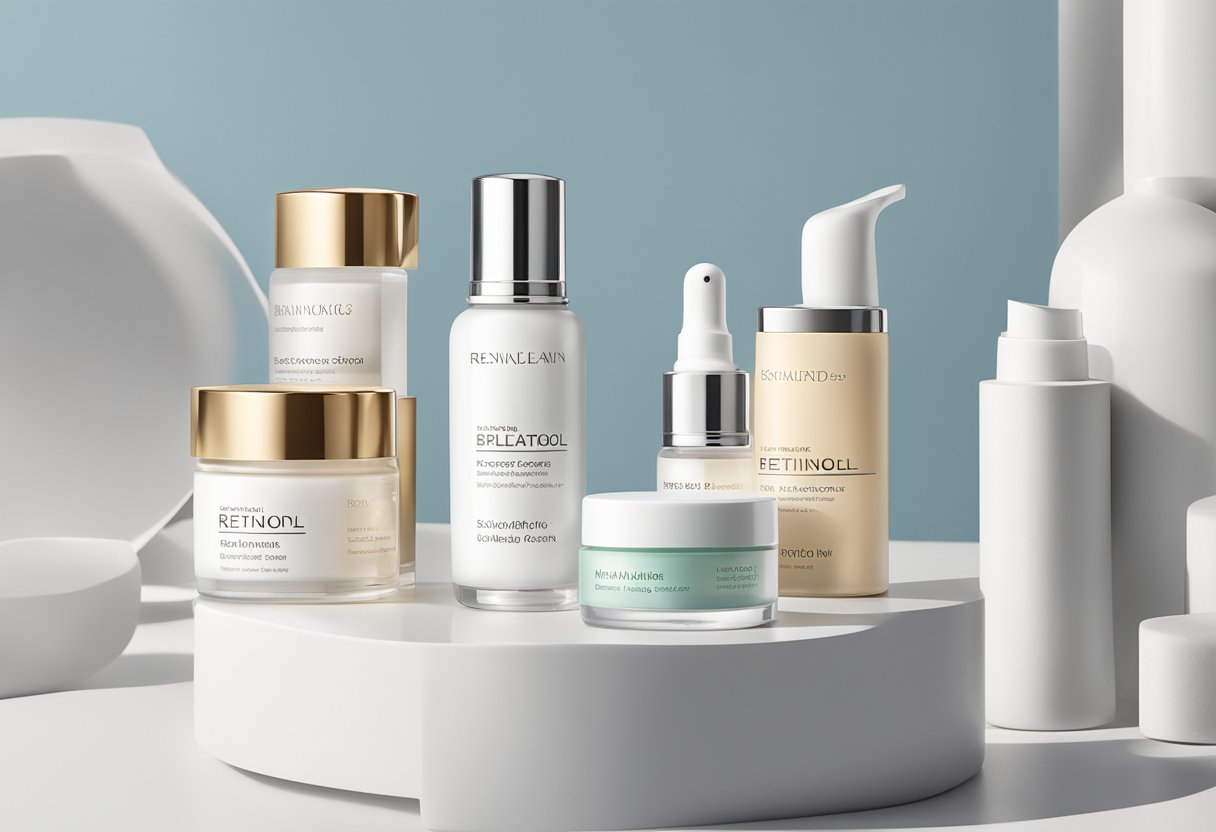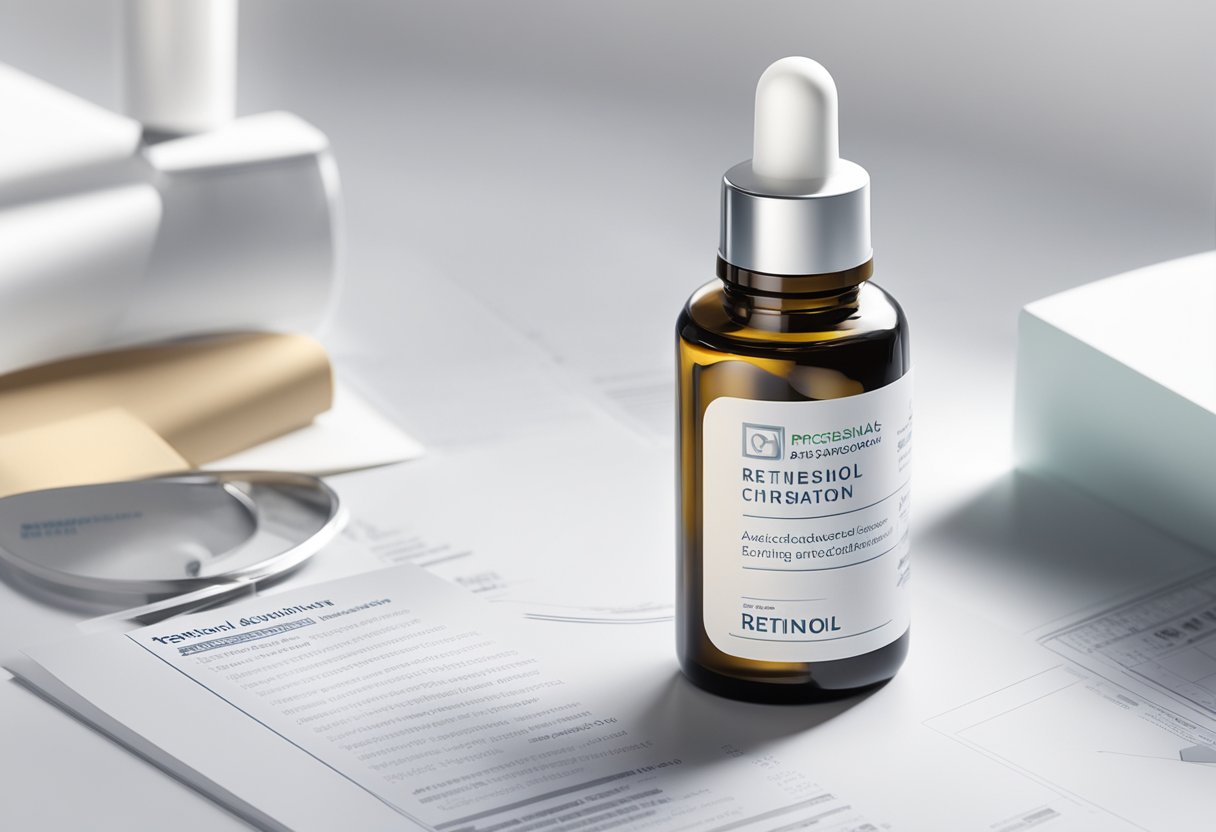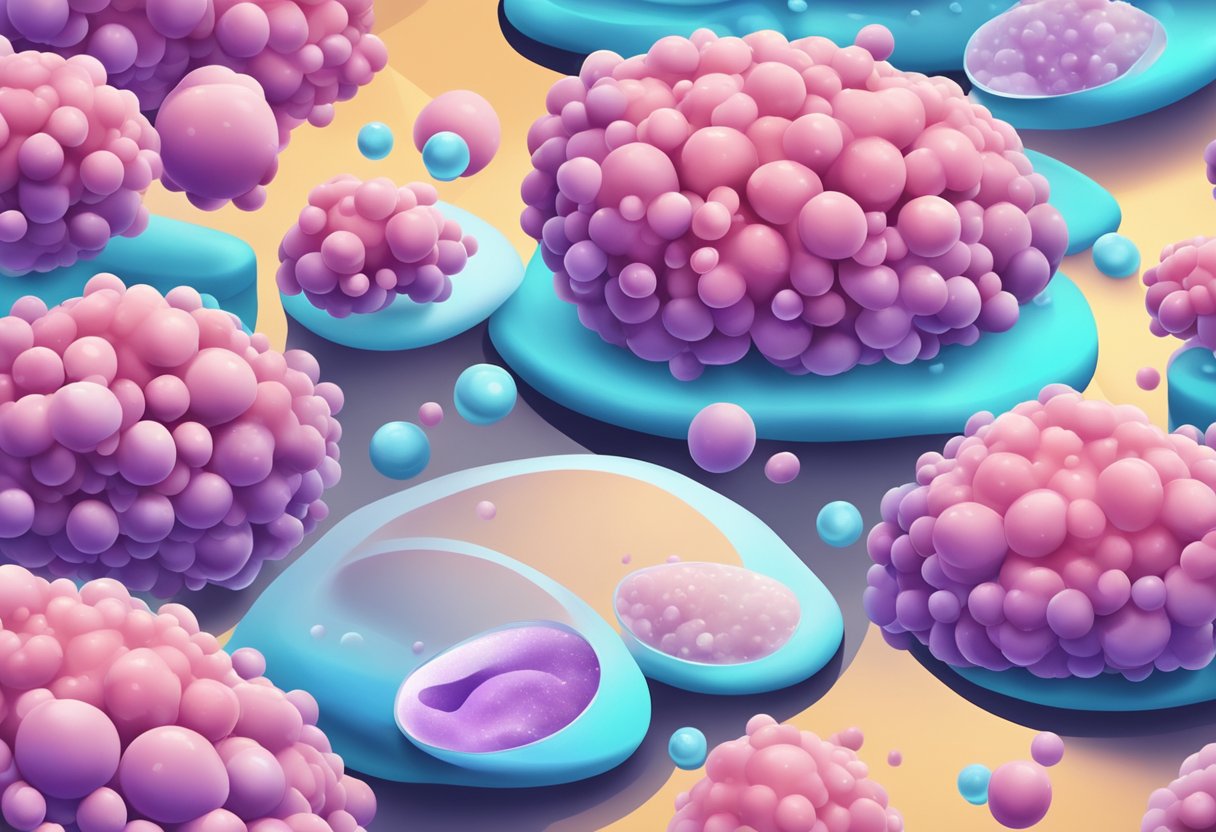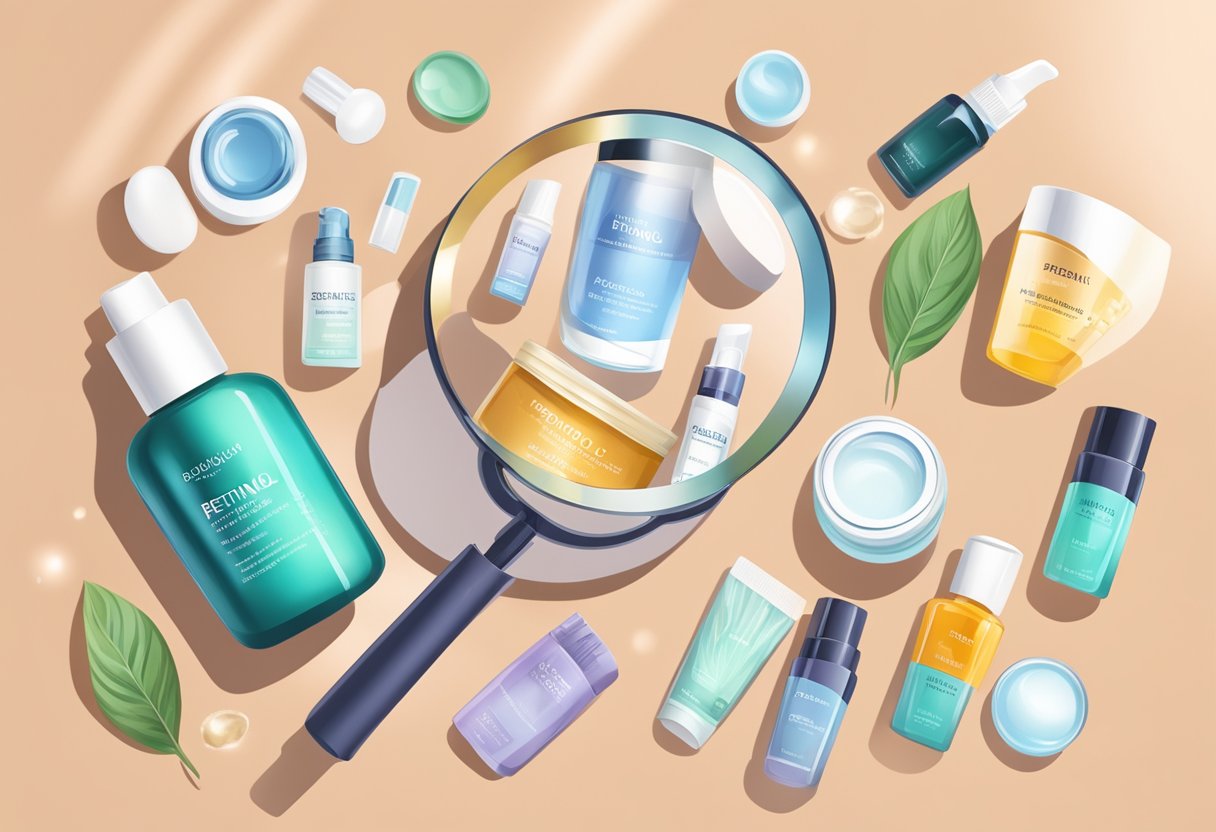What Does It Do and Its Impact on Skincare
Retinol, a derivative of vitamin A, has gained notable popularity in the skincare industry due to its remarkable benefits. Known for its anti-aging properties, retinol helps to improve skin texture, reduce the appearance of fine lines and wrinkles, and tackle various skin issues, including acne and hyperpigmentation. Its effectiveness not only relies on promoting skin cell regeneration, but also on stimulating collagen production and neutralizing free radicals, which aids in maintaining youthful, healthy skin.

Although many over-the-counter products contain retinol, it is crucial to understand how and when to apply these products to maximize its benefits while minimizing potential side effects. Some side effects can include skin irritation and increased sensitivity; however, by gradually introducing retinol into your skincare routine, starting with low concentrations, and adjusting the frequency of application, these side effects can be managed effectively.
Key Takeaways
- Retinol offers various skincare benefits, such as anti-aging, improved skin texture, and treating acne
- Application and correct usage of retinol are essential to maximizing benefits while reducing potential side effects
- Gradual introduction and adjusting retinol concentrations can help manage side effects like skin irritation and increased sensitivity
Retinol and Vitamin A Derivatives
Retinol is a form of vitamin A, which is an essential nutrient for maintaining healthy skin, teeth, and bones. Vitamin A itself is a fat-soluble nutrient and can be classified into two main groups: retinoids and carotenoids. Retinoids are preformed vitamin A derived from animal sources, while carotenoids are provitamin A derived from plant sources. Retinol is a specific type of retinoid that is commonly found in various skincare products, known for its immense benefits in combating signs of aging and improving the overall appearance of the skin.
How Retinol Works in the Skin
Retinol works by regulating cell turnover and promoting the production of new skin cells to replace old, damaged ones. It does this by stimulating the production of collagen, a protein that provides structure and elasticity to the skin. Collagen production naturally decreases as we age, causing wrinkles and loss of firmness in the skin. By increasing collagen levels, retinol helps to restore the skin's youthful appearance and reduce visible signs of aging.
Moreover, retinol has anti-inflammatory properties, making it an effective solution for combating acne and other skin issues. It helps to keep pores clear by reducing the buildup of skin cells and blocking inflammation pathways in the skin. Additionally, retinol helps to even out skin tone by minimizing hyperpigmentation and promoting an overall balanced complexion.
It is essential to note that retinol can cause initial irritation as the skin adapts to it, particularly when using a new product or increasing the concentration. Some potential side effects include redness, itchiness, and peeling skin, which can be minimized by gradually introducing the product and adjusting the frequency of use based on skin tolerance.
In summary, retinol is a powerful skincare ingredient derived from vitamin A that can promote youthful skin, improve texture, and reduce visible signs of aging and acne. By understanding its properties and mechanisms, users can effectively incorporate retinol into their skincare routine to enjoy its numerous benefits.
Benefits of Retinol for the Skin
Retinol, a form of vitamin A, is a popular skincare ingredient known for its multiple benefits in improving the overall appearance and health of the skin. In this section, we will explore three major benefits of retinol: anti-aging effects, acne and pore refinement, and improvement of skin texture and tone.
Anti-Aging Effects
Retinol is widely recognized for its anti-aging properties. Its ability to neutralize free radicals, accelerate skin cell turnover, and boost collagen production makes it effective in reducing the appearance of fine lines and wrinkles. This leads to a youthful, plump, and radiant complexion. Moreover, retinol may help address skin issues such as sagging and loss of elasticity due to aging.
Acne and Pore Refinement
Another benefit of using retinol is its efficacy in the treatment of acne. It helps unclog pores and reduce inflammation, thus preventing the formation of pimples and breakouts. Retinol also promotes the production of new skin cells, ensuring a faster healing process for existing acne lesions. Furthermore, it has been shown to minimize the appearance of enlarged pores, giving the skin a smoother and more refined appearance.
Improvement of Skin Texture and Tone
Retinol works wonders in enhancing the overall appearance of the skin. By increasing collagen and cell turnover, retinol contributes to a smoother and more even skin texture. Additionally, it helps fade hyperpigmentation and dark spots, promoting a more uniform and balanced skin tone.
Incorporating retinol into your skincare routine can lead to significant improvements in the appearance and health of your skin. With its anti-aging, acne-fighting, and skin-enhancing properties, retinol is a powerful and versatile ingredient that should be considered by anyone looking to achieve a radiant, youthful complexion.
Application and Use of Retinol
Retinol is a form of vitamin A that has various benefits for skincare, such as treating acne and providing anti-aging effects. This section will focus on choosing the right retinol product and the correct application techniques to obtain the best results.
Choosing the Right Retinol Products
When selecting a retinol product, it is essential to consider the concentration and form that best suits your skin condition and goals. Retinol is available in various forms, including creams, serums, and moisturizers. The concentration can range from low-strength over the counter products to higher-strength prescription options.
-
Serums: These are lightweight, fast-absorbing liquids rich in active ingredients. A retinol serum may be suitable for those who want a targeted treatment for specific skin concerns like acne or fine lines.
-
Creams: Retinol creams are thicker and provide more hydration than serums. They are best for those with dry or sensitive skin.
-
Moisturizers: These combine retinol with hydrating ingredients, making them a suitable choice for those seeking both anti-aging effects and daily moisturization.
It is advisable to start with a lower concentration of retinol and gradually increase it as your skin builds tolerance. Always consult a dermatologist or skincare professional for personalized advice.
Correct Application Techniques
To maximize the benefits of retinol, follow these steps in your skincare routine:
-
Cleanse: Thoroughly cleanse your skin to remove dirt, oil, and makeup.
-
Application: Apply a pea-sized amount of retinol product on your face, focusing on problem areas. Make sure to avoid the eye area, as it can be sensitive to retinol.
-
Wait: Allow the retinol to fully absorb into your skin for about 20 to 30 minutes before continuing with your routine.
-
Moisturize: If you use a retinol serum or cream, follow up with a moisturizer to help reduce potential dryness or irritation.
-
Sunscreen: Use a broad-spectrum sunscreen with SPF 30 or higher daily, as retinol can increase your skin's sensitivity to UV rays.
Remember to start with a small amount and lower concentration of retinol, gradually increasing frequency and strength as your skin becomes accustomed to the ingredient. It is essential to monitor your skin's reaction and consult a professional if you experience severe irritation or worsening of your skin condition.
Potential Side Effects and How to Mitigate Them
Common Irritations and Sensitivity
Retinol is commonly known for its skin rejuvenation benefits, but it can also cause skin irritations and sensitivity. Some of the common side effects include redness, dryness, inflammation, itchiness, and an increase in sensitivity. It's important to note that these side effects vary depending on the individual's skin type and concentration of retinol used. People with pre-existing conditions such as eczema or rosacea may experience more severe reactions.
To mitigate these side effects, start with a lower concentration of retinol and gradually increase its use over time. This will allow your skin to adapt and build tolerance to the product. Furthermore, ensure that you properly moisturize your skin to counteract any dryness or irritation caused by retinol.
Another method to minimize the risk of irritation is to apply retinol only every other day or twice a week, allowing your skin to recover between applications. Using soothing products like aloe vera gel or chamomile-based creams can also help alleviate redness and itchiness.
Balancing Retinol Usage with Sun Protection
One major concern when using retinol is increased sun sensitivity. Since retinol accelerates the skin cell turnover process, it makes newer, more sensitive skin layers more vulnerable to the sun's harmful UV rays. This might lead to sunburn or, in some cases, worsen the appearance of existing sun damage.
To protect your skin, always apply a broad-spectrum sunscreen with an SPF of at least 30 before stepping out in the sun. This ensures protection against both UVA and UVB rays. Additionally, consider wearing sunglasses to shield your eyes and sensitive skin around them, as well as protective clothing like wide-brimmed hats to cover up as much skin as possible.
Another way to balance retinol usage and sun protection is to apply retinol products only at night, as the absence of sunlight allows the active ingredient to work more effectively without the risk of sun-induced side effects. During the day, prioritize sun protection and moisturization to maintain healthy and rejuvenated skin.
Keep in mind these recommended precautions while using retinol to enjoy its benefits without the unwanted side effects. By gradually introducing retinol into your skincare routine and combining it with proper sun protection and moisturization techniques, you can achieve your skin rejuvenation goals successfully.
Advanced Retinol Information

Retinol is a popular skincare ingredient known for its anti-aging and acne-fighting properties. In this section, we will discuss the differences between prescription and over-the-counter retinol options, as well as alternative retinoid compounds.
Prescription vs Over-the-Counter Options
Prescription retinoids like tretinoin (Retin-A) and tazarotene are more potent and provide quicker results than over-the-counter (OTC) retinol products. The skin directly uses retinoic acid in the form of retinoin, which is Retin-A's active ingredient. Tazarotene is another strong prescription retinoid, often used to treat acne and psoriasis. It is important to know that these prescription retinoids can cause skin irritation and sensitivity.
OTC retinol products, on the other hand, are less potent and generally cause less irritation. The skin transforms retinol into retinoic acid upon application. It takes more time for these products to show results, but they are suitable for those with sensitive skin or for beginners. Some popular OTC retinoids include retinaldehyde and adapalene (Differin).
Here is a brief comparison of prescription and OTC retinoids:
| Type | Potency | Irritation | Examples |
|---|---|---|---|
| Prescription | High | Higher | Tretinoin, Tazarotene |
| OTC | Lower | Lower | Retinaldehyde, Adapalene |
Alternative Retinoid Compounds
There are several alternative retinoid compounds available on the market, with varying strengths and properties:
- Tretinoin: is a prescription retinoid, also known as Retin-A, which is a form of retinoic acid.
- Adapalene: is a synthetic retinoid, available over-the-counter as Differin, used primarily for acne treatment.
- Tazarotene: is a strong prescription retinoid used to treat acne and psoriasis.
- Retinal: Also known as retinaldehyde, this OTC retinoid is less irritating than tretinoin and adapalene but offers similar benefits.
In conclusion, retinol and its alternative compounds offer a range of options for those seeking to improve their skin's appearance and health. It is essential to consider factors such as potency, irritation levels, and specific skin concerns when selecting a retinoid product.
Retinol in Special Contexts and Conditions

Retinol and Skin Disorders
Retinol is a form of vitamin A that is commonly used to address various skin conditions, thanks to its ability to promote cellular turnover and collagen production. It is effective in treating skin disorders like acne, psoriasis, and melasma. For instance, in acne-prone skin, retinol helps clear blocked pores, reduce both whiteheads and blackheads, and diminish the appearance of acne scars. Additionally, it may alleviate symptoms of psoriasis by encouraging new skin cell growth.
Retinol even has potential applications in cancer prevention, as it has been observed to neutralize free radicals and protect skin cells from damage. However, it's vital to consult with a healthcare professional before using it to treat specific skin conditions to ensure safety and efficacy.
Using Retinol While Pregnant or Breastfeeding
Although retinol has numerous advantages, its use is not recommended for all individuals. Pregnant women and those who are breastfeeding should exercise caution when considering retinol-based products. During pregnancy, the skin becomes more sensitive, and retinol may exacerbate irritation or cause harm to the developing fetus.
Similarly, breastfeeding mothers are advised to avoid using retinol, as it is unclear whether retinol passes into breast milk and could potentially harm the nursing infant. It is always best to consult with a healthcare professional before incorporating retinol into a skincare routine during pregnancy or while nursing.
Additional Considerations for Retinol Use

Long-term Results and Expectations
Retinol, a form of vitamin A, is known for its efficacy in targeting various skin concerns, including anti-aging and reducing acne. Over time, regular use of retinol can deliver significant, visible improvements. It diminishes the appearance of fine lines, wrinkles, dark spots, and scarring. However, users should understand that the results may not be immediate, and a consistent skincare routine is necessary for the best outcomes.
It's essential to incorporate sun protection while using retinol, as the ingredient can increase skin sensitivity to UV rays. Applying a broad-spectrum sunscreen with an SPF of 30 or higher is highly recommended to shield against sun damage, which can lead to premature aging. When starting to use retinol, it might be best to begin at a low concentration and gradually increase the strength to minimize irritation.
Retinol and Its Role in Preventative Skincare
Retinol can play a vital role in preventative skincare, as it is proactive in addressing signs of aging and other skin concerns. Its ability to keep pores clear by reducing the buildup of skin cells makes it effective in preventing acne. Moreover, the topical vitamin A derivative promotes skin cell turnover and stimulates collagen production, helping to prevent sagging and fine lines.
It is essential to consider potential interactions with other medications when incorporating retinol into your skincare routine. In some cases, retinol may not be suitable to use with specific treatments. For example, certain medications for acne or those that cause skin sensitivity might not mix well with retinol. Always consult with a healthcare professional about potential interactions before introducing new skincare products.
The preventative benefits of retinol make it a valuable addition to a comprehensive skincare routine. By incorporating this powerhouse ingredient, users can maintain a youthful and healthy appearance while addressing a variety of skin concerns.
Frequently Asked Questions
How can retinol improve acne-prone skin?
Retinol can improve acne-prone skin by increasing skin cell turnover and sloughing away dead skin cells. This process helps to reduce pore-clogging debris and assists in preventing acne breakouts. Moreover, retinol helps reduce inflammation and redness associated with acne, making it a valuable addition to your skincare routine 1.
What are the top benefits of using retinol on the skin?
Some of the top benefits of using retinol on your skin include its ability to refine skin texture, reduce the appearance of wrinkles, minimize enlarged pores, and improve skin discoloration caused by aging or sun damage. Retinol is also known to help with acne and has anti-aging effects.
Which retinol product type is best for nightly skincare routines?
The best retinol product type for nightly skincare routines depends on your skin type and preferences. Options include creams, serums, and gels. Creams are generally thicker and provide extra moisturization, while serums and gels are lightweight, making them suitable for oily or combination skin types. Experiment with different products to determine the one that works best for your skin needs 3.
What results can be expected from retinol regarding wrinkle reduction?
Retinol helps neutralize free radicals in the middle layer of your skin, which can lead to a reduction in the appearance of wrinkles and fine lines. By increasing skin cell turnover and promoting collagen production, retinol can achieve a smoother, more youthful complexion. It is essential to be patient, as results may take several weeks or months to appear.
How should retinol be incorporated into a daily skincare regimen?
Retinol is best used as part of your nighttime skincare routine. Begin by using a small amount of retinol (around the size of a pea) on clean, dry skin. For sensitive skin, consider mixing retinol with a moisturizer to reduce potential irritation. Start by applying retinol every other night and gradually increase the frequency to nightly use as your skin adjusts.
What changes might one observe after using retinol over an extended period?
Over time, retinol can lead to significant improvements in skin texture, tone, and overall appearance. You may notice a reduction in fine lines, wrinkles, and enlarged pores, as well as brighter, more even skin tone. The results can vary depending on the individual, but consistent use is key to achieving visible improvements in your skin's appearance.




